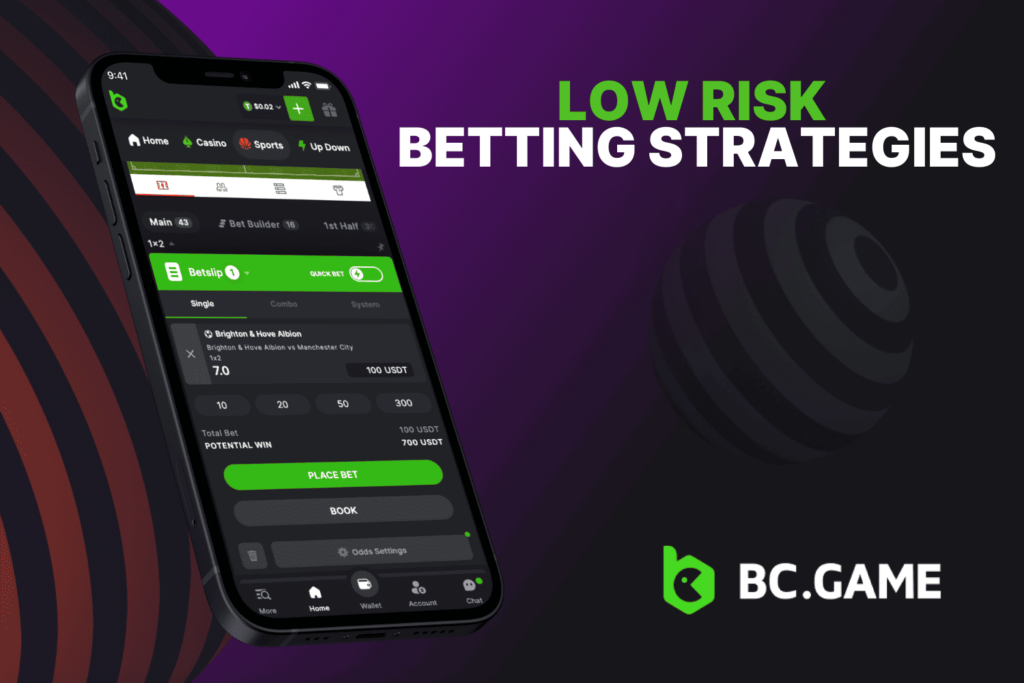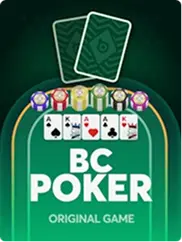
Low-risk betting strategies are usually focused on preserving capital and reducing the likelihood of losses. One such strategy is “Martingale”, which consists of doubling the size of the next bet after each losing bet to cover the previous losses. In this way, when a player wins, he can make up for all the losses. However, this strategy has limitations and may require a large amount of capital to keep on the distance, and there is a risk of “ruin” with a long series of losses.
Is There a Win-Win Strategy
In practice, there is no absolutely no-win strategy in gambling, as they are all based on probability, chance and risk. Even the most carefully designed strategies cannot eliminate the possibility of losing, because the outcome of the game depends to a large extent on random factors that at some level beyond the control of the player.
However, some strategies can help manage risk and increase the likelihood of success over the long term. The basic approach is not to invest more money than you are willing to lose and to watch your limits. It is important to remember that gambling is first and foremost entertainment and investing should be seen as a loss of money, not a way to make money. However, adopting a zero risk betting strategy can minimize the risks involved in gambling.
Types of Strategies
The types of gambling strategies are varied and aim to effectively manage risk and increase the probability of winning. Gambling strategies rely on analyzing game events and include techniques such as the Martingale strategy, which involves doubling a bet after a loss, or the Flat strategy, where bets remain constant regardless of outcomes. Financial strategies focus on bankroll management, including approaches such as fixed profit, where the player sets a profit target and ends the game when it is reached. Mathematical strategies rely on probabilistic calculations and analysis of statistics, such as card counting in blackjack or the use of statistics in sports betting. Each of these approaches has its own characteristics and applicability, and choosing the best strategy depends on the player’s goals and the specific situation.
Game Strategies
Gambling strategies are focused on identifying rules and tactics that can increase the probability of winning. They are based on analyzing situations in the game and making decisions according to a certain plan.
Double bets after each loss, aiming to recover losses upon the next win. High risk of significant loss in extended losing streaks.
Bet the same amount on every outcome consistently, irrespective of prior results. Focus on risk management and stability, without actively improving winning probabilities.
Set a specific profit percentage goal and stop playing upon achieving it. Helps avoid greed and secure winnings.
Bet a certain percentage of the current bankroll. Increase bets as the bankroll grows, decrease when it shrinks. Adapts to financial changes while maintaining proportional bets.
Mathematical strategies
Mathematical strategies involve analyzing statistics, probabilities and mathematical models to make bets. These include, for example, strategies based on card counting in blackjack or the use of statistics in sports betting.
Each of these types of strategies has its own advantages and disadvantages, and the choice of a particular strategy depends on the player’s preference, risk level, knowledge in a particular area and financial ability.
Strategies of experienced cappers
Experienced sports betting cappers often use a variety of strategies to increase their chances of successful betting. Here are some famous strategies that are used by experienced punters:
| 🎰 Betting Strategy | ✅ Description |
|---|---|
| Kelly Criterion | Optimize bet sizes based on estimated success probabilities and odds. Maximize profit and minimize risk through mathematical bankroll management. |
| D’Alambert | Adjust bet sizes based on past outcomes. Increase after losses, decrease after wins, aiming to balance losses with subsequent wins. |
| Oscar Grind | Positive progression strategy. Increase bets after wins and decrease after losses. Focus on modest profit over a series of wins while reducing risk of significant losses. |
| Flat | Fixed betting strategy with consistent bet sizes regardless of previous outcomes. Maintain stable bankroll and manage risks without actively increasing winning probability. |
Each of these strategies has its own advantages and limitations, and their effectiveness may depend on the sport, player’s preferences and degree of analytical ability. Experienced cappers often combine different strategies depending on the specific situation and betting objectives, including the use of a no risk bet approach.
What’s Best for a Beginner
For beginners in gambling, it is important to start with a careful and structured approach to avoid possible big losses and learn how to manage your bankroll effectively. Flat (fixed bet) strategy is indeed one of the most suitable options for beginners.
The Flat strategy offers a number of advantages:
- Risk Management: However betting on each event will help to avoid quick and significant losses, which is especially important for beginners who are just starting to get acquainted with the world of gambling.
- Gradual mastery: This strategy gives beginners the opportunity to gradually understand the mechanics of the game, understand the rules, explore strategic aspects and gain experience without exposing themselves to too much financial risk.
- Bankroll Preservation: Flat strategy helps to preserve the bankroll over the long term, which is important for a player to continue to learn and grow in the world of gambling.
- Psychological stability: Equal sized bets help avoid emotional spikes when the results of outcomes change. This can promote a more balanced and disciplined approach.
Keep in mind that no strategy guarantees successful outcomes 100% of the time, but the Flat strategy provides a platform for beginners to get started, build experience and develop risk management skills, which can ultimately increase their chances of long-term success.
What is the Best Thing to Take for a Live Game
Live play, where bets are placed while an event is in progress, requires a faster and more adaptive strategy. The Kelly Criterion strategy can indeed be useful in this context. It allows you to determine the optimal bet size, taking into account the probability of success and odds, which allows you to react appropriately to changes in the situation and effectively manage your bankroll.
However, when playing live, it is also important to maintain discipline and not give in to sudden impulses. Reaction and decision-making speed in this mode can be an important aspect, so you need to stay cool and focused.
Starting with small bets is a good practice for newcomers to live games and gambling in general. This will allow you to learn the dynamics of the game, learn to recognize patterns and trends, and manage your finances with no risk betting.
Tips From Professionals
- Learning and Research: Professional gamblers emphasize the importance of learning and continually researching their chosen field. Immerse yourself in the game of chance, learn the rules, analyze statistics and follow trends.
- Bankroll Management: Experienced players call for strict bankroll management. Determine the amount you are willing to spend and do not exceed it. Divide the bankroll into betting units and bet consciously.
- Discipline and Emotions: Professionals advise controlling emotions and keeping discipline. Don’t let emotions influence your decisions, and don’t try to “get even” after losses.
- Analyze and assess risks: Look at the game as an investment. Analyze probabilities and risks before placing a bet. Avoid taking too many risks, even if they seem favorable.
- Diversity and specialization: Don’t spread your efforts over too many types of games. Focus on a specific area, become an expert in it and learn to recognize opportunities.

Summary
Gambling does provide a variety of opportunities to have fun and try your luck. However, it is important to remember that there is risk involved. There are no win-win solutions, and each strategy or approach has its own strengths and weaknesses.
Regardless of experience, beginners are advised to start with more conservative strategies to avoid losing too much and to learn how to manage risk. For experienced players, it is important to remain disciplined and analytical in order to minimize risks and increase their chances of success.
At the center of it all remains the enjoyment of the game. It is important to remember that gambling, in addition to the potential winnings, is also about enjoyment and entertainment. Keeping the joy of the game and a healthy balance with real financial opportunities will help make your experience more enjoyable and meaningful.





























